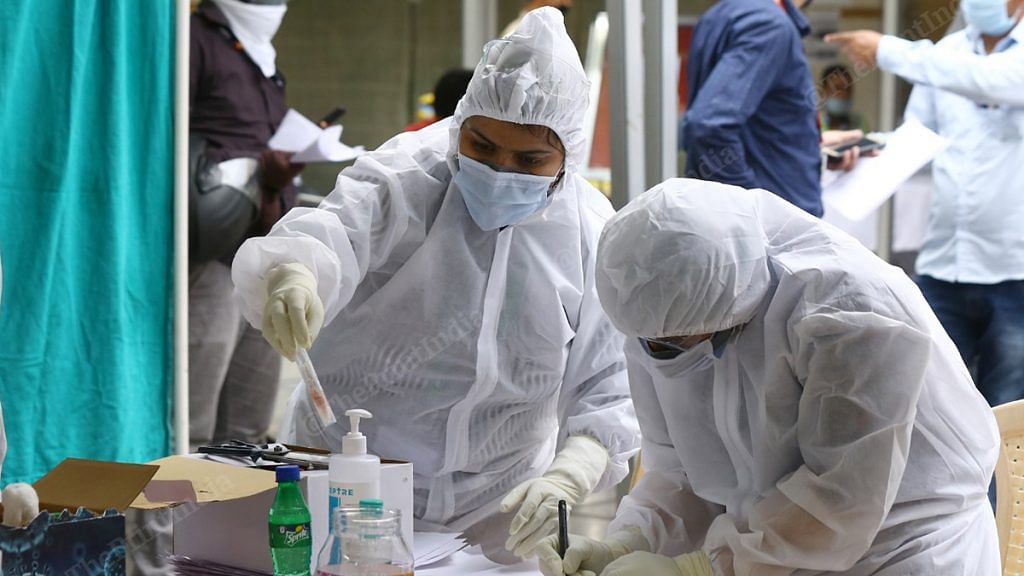New Delhi: Calquence, a blood cancer drug manufactured by the British-Swedish pharmaceutical company AstraZeneca, has shown initial positive results in the treatment of severe Covid-19 patients, according to a preliminary study.
Published in the science journal Science Immunology Friday, the study was conducted on 19 Covid patients who were started on a 10-14 day course of calquence, whose generic name is acalabrutinib. Eleven of these patients were on oxygen. Nine of them were discharged.
“The oxygenation and clinical status of most patients on supplemental oxygen improved relatively rapidly following acalabrutinib initiation,” the study said.
Also read: WHO changes guidelines on masks, says wear them when social distancing not possible
Calquence suppresses cytokine storm-causing protein
The US-based study was conducted on severe Covid-19 patients between 20 March and 10 April. Of the 19, 11 patients were receiving supplemental oxygen and the remaining eight were on the ventilator.
In the first cohort that was receiving supplemental oxygen, five were on other medication including steroids and/or hydroxychloroquine (HCQ). All eight patients on the ventilator were on concomitant drugs, which included steroid and/or HCQ.
Following the calquence treatment, nine of the 11 patients in the supplemental oxygen cohort were discharged. Of the remaining two in this group, one remained hospitalised and the other died.
In the second cohort that was receiving ventilation, three patients were discharged, one discharged to rehabilitation while the remaining four died.
“In all, 12 patients achieved normal oxygenation on room air (2 more that at our formal data cutoff) and none have had a recurrence,” the study noted.
So far, research has indicated that mortality among severe Covid-19 patients is caused by excess production of a type of protein known as cytokine by the immune system. In the study on the effectiveness of calquence, researchers found that the drug was successful in suppressing the particular protein — the IL-6 protein — that causes a ‘cytokine storm’.
This happens as a result of the drug targeting the Bruton’s tyrosine kinase (BTK), an enzyme which plays a role in the excess production of IL-6. “In keeping with these findings, blood IL6 levels in Covid-19 patients on our clinical study decreased during acalabrutinib treatment,” the study concluded.
According to reports, the results were promising enough for AstraZeneca to launch the second phase of the trial, which will involve 200 patients.
A Kinase inhibitor
Acalabrutinib, a US Food and Drug Administration-approved drug, is a particular type of kinase inhibitor — a substance that blocks a certain enzyme known as kinases. Certain kinases are active in cancerous cells, and blocking them using inhibitors prevents their growth.
The drug is used to treat certain types of cancer including mantle cell lymphoma, small lymphocytic lymphoma and chronic lymphocytic leukemia.
Side effects of this medication, however, could lead to headache, diarrhea, low blood count, fatigue and, in rare cases, irregular heart rhythm (known as arrhythmia).
Also read: Covid patients with high blood pressure face ‘double risk’ of death, says Chinese study
